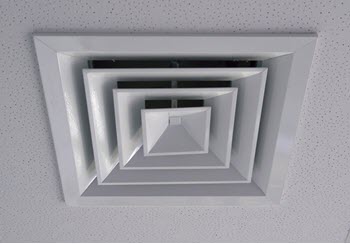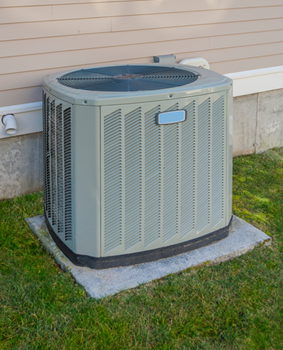 Few things can irritate as much as elevated indoor humidity. HVAC systems may be designed to give us a high degree of comfort throughout the year, but humidity can, nevertheless, soar during summer.
Few things can irritate as much as elevated indoor humidity. HVAC systems may be designed to give us a high degree of comfort throughout the year, but humidity can, nevertheless, soar during summer.
The majority of digital thermostats provide users the ability to control humidity. However, correctly programming them is something that most people have yet to master. It would be best to let trained HVAC technicians deal with humidity control in homes and commercial establishments.
Lower Humidity In House: Why Does My House Feel So Humid?
HVAC technicians can perform every technique available to lower the household humidity. They can also observe and inspect all areas of the home to come up with additional recommendations. HVAC maintenance, for example, is a crucial strategy that you should not miss. Below is a list of the things that you can do to minimize excess moisture in your property:
How You Can Utilize Fans To Lower Humidity
- Lower Humidity In House: Why Does My House Feel So Humid?
- How You Can Utilize Fans To Lower Humidity
- How Good Ventilation Can Lead To A Drop In Humidity
- Cold Showers As A Humidity-Control Strategy
- Installation Of Home Dehumidifiers
- Improving Comfort Levels By Using The Air Conditioner
- Schedule HVAC Maintenance & Inspections Regularly
The problem with elevated humidity is that it negates the cool temperatures and makes it hard to sleep. You can even suffer from frizzy hair and too much sweat. As for the house, you might see faster growth rates for mold and mildew. This issue is not good news for family members that have existing respiratory ailments and related problems.
One way to fight this is to let the ceiling fan run in your bedroom at night. As the blades spin, they will encourage air circulation, which should make the room feel cooler. Using a fan will also have an evaporative effect on moist areas such that they will dry up quickly. Without stale air, the fungus will have a harder time growing and spreading. Fans are economical additions with multiple benefits that you should install in most rooms.
How Good Ventilation Can Lead To A Drop In Humidity
 Improper ventilation is one of the common causes of high humidity. Technicians may be called in to inspect the air conditioning system and see if the air is flowing smoothly across the lines. Sometimes the problem can be traced to an obstacle in the HVAC ducts such as dirt and debris. The techs should also see to it that the moisture-prone areas like the bathrooms and kitchen vent air outside directly instead of pushing air to the attic.
Improper ventilation is one of the common causes of high humidity. Technicians may be called in to inspect the air conditioning system and see if the air is flowing smoothly across the lines. Sometimes the problem can be traced to an obstacle in the HVAC ducts such as dirt and debris. The techs should also see to it that the moisture-prone areas like the bathrooms and kitchen vent air outside directly instead of pushing air to the attic.
If there are ventilation fans, then turning them on would be a good idea. You can also do simple things like opening doors and windows to let air circulate around an area. This should help with cross-ventilation in which old air and humidity get expelled while fresh air comes in. This is a good method to use when you want to get rid of excess moisture and prevent mold growth. Do it in the laundry room and shower areas.
Cold Showers As A Humidity-Control Strategy
Moisture control does not have to be complicated as you can do it by switching from hot to cold showers. You should also shorten the duration as much as possible. Many prefer hot showers because of their ability to make us feel relaxed. However, they have the side effect of increasing humidity levels in the home. The steam generated can absorb moisture and heat up the area. Cold showers have the opposite effect on moisture. It can also refresh and recharge. Once you’re done, leave the door open for added effect.
Installation Of Home Dehumidifiers
If you want extra help, then you could install a standalone dehumidifier inside the household. These will keep the room cool while extracting the moisture out of the indoor air. An HVAC contractor can assist you in finding a suitable unit for your needs.
Improving Comfort Levels By Using The Air Conditioner
 Air conditioners have the ability to cool down spaces and lower indoor humidity. Although they can run at any hour of the day, it is advised to turn the AC on early in the morning to have a headstart in reducing humidity. Otherwise, it might just build up to intolerable levels later in the day. Maintaining a certain level is easier than attempting to reduce humidity.
Air conditioners have the ability to cool down spaces and lower indoor humidity. Although they can run at any hour of the day, it is advised to turn the AC on early in the morning to have a headstart in reducing humidity. Otherwise, it might just build up to intolerable levels later in the day. Maintaining a certain level is easier than attempting to reduce humidity.
Homeowners should always ensure that the AC units are running at the right temperature and actively lessening moisture in the air. The digital thermostat can show you what the humidity reading is at any point. If yours doesn’t have one, then have it replaced right away.
Schedule HVAC Maintenance & Inspections Regularly
Although HVAC systems and dehumidifiers are known to be highly reliable equipment, they too can fail due to stress and other issues. Their absence will trigger a sudden surge in heat and humidity until competent HVAC technicians repair the machines.
You could reduce the risk of failure by scheduling maintenance service two times a year. Techs will check the system to spot developing problems and implement fixes before they get worse. They will also perform any necessary procedure such as refrigerant recharge, air leak sealing, and so on.
Call a local HVAC contractor for best results. Contact various candidates to ask about humidity reduction strategies. They should be able to answer pertinent questions with ease.
Conclusion
Skylands Energy Service has NATE-certified technicians who are both competent and friendly. Our expert technicians can demonstrate their skills and experience through their work on your system. You are sure to be satisfied with their speed, proficiency, and professionalism.
Allow us to take care of your HVAC system maintenance, installation, and repairs. With our help, you can look forward to reliable and efficient systems that provide excellent air quality. Our rates are on par with the industry standards. Call Skylands Energy Service today for a free consultation!
Contact us now at (908) 707-1776 to find out more!
The post Simple Methods To Reduce The Humidity Levels In Your Home appeared first on Skylands Energy.
from Skylands Energy https://www.skylandsenergy.com/indoor-air-quality/lower-humidity-in-house/
via IFTTT

No comments:
Post a Comment